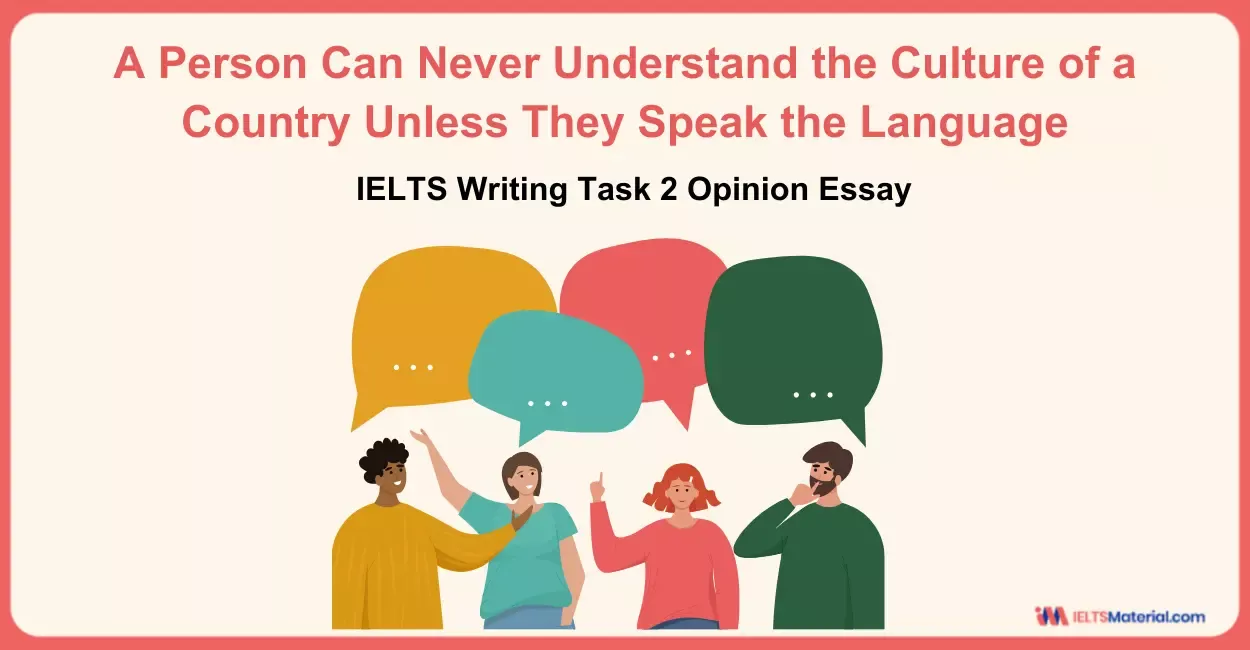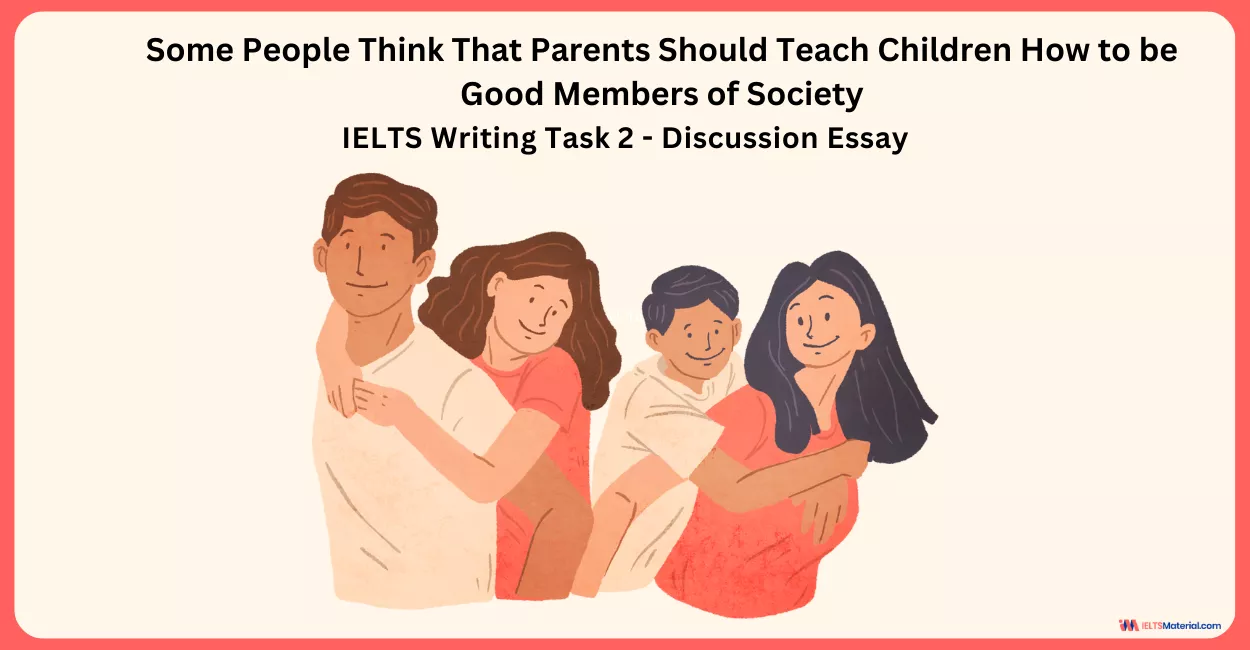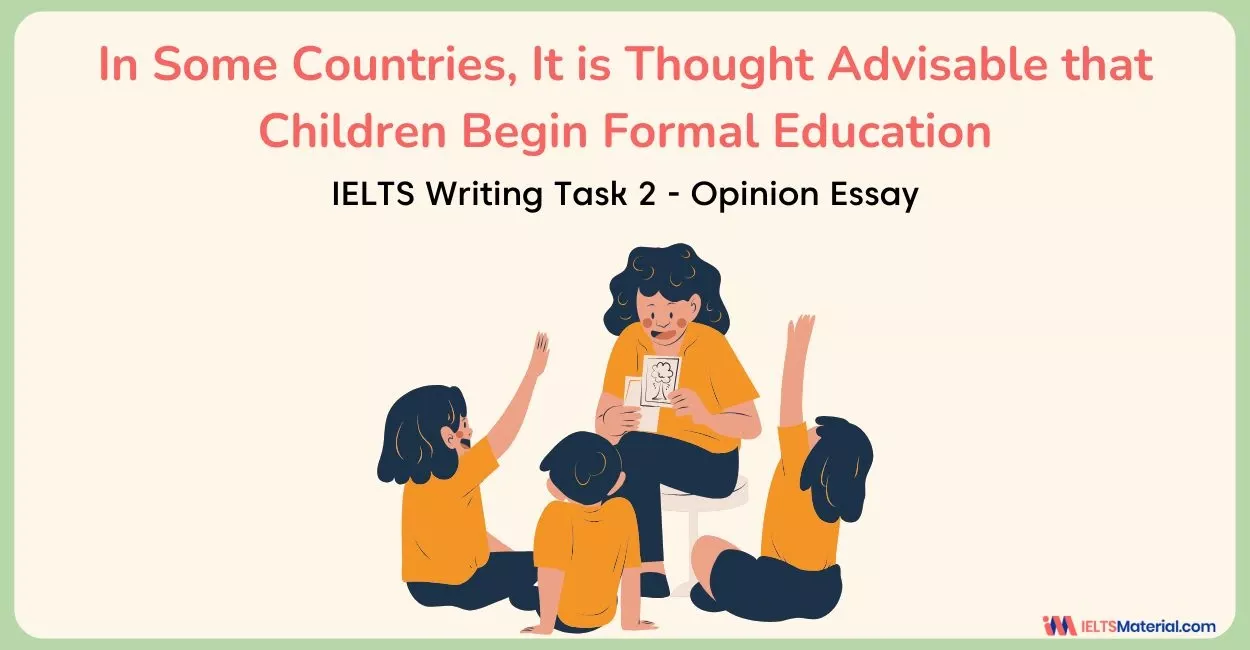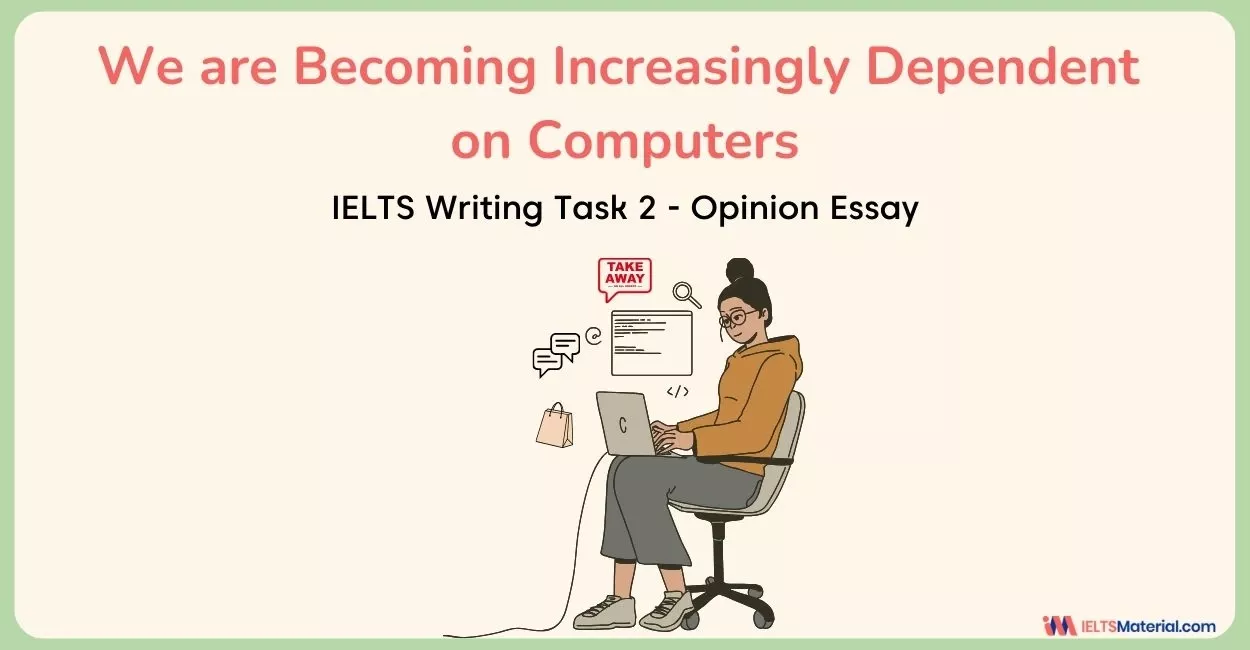In Some Countries, It is Thought Advisable that Children Begin Formal Education - IELTS Writing Task 2
8 min read
Updated On
-
Copy link
Improve your writing skills for IELTS Task 2 with the opinion essay ‘In Some Countries, It is Thought Advisable that Children Begin Formal Education’. You can create a high-scoring essay with a detailed outline, sample answers, and vocabulary given here.
Table of Contents
- Essay Question for ‘In Some Countries, It is Thought Advisable that Children Begin Formal Education’
- Outline for IELTS Opinion Essay
- Sample Answers for In Some Countries, It is Thought Advisable that Children Begin Formal Education IELTS Writing Task 2
- Vocabulary to Use for In Some Countries, It is Thought Advisable that Children Begin Formal Education - IELTS Writing Task 2

Try AI Essay Checker for Instant Band Score
Across the world, early childhood has become a contested space where cultural beliefs, educational philosophies, and parental expectations collide. Some societies emphasise early academic exposure and structured learning, while others value unhurried childhoods filled with exploration and emotional growth. This difference in opinion gives rise to IELTS Writing Task 2 topics like ‘In some countries, it is thought advisable that children begin formal education’.
In this blog, let us explore Band 7+ model essays on the topic ‘In some countries, it is thought advisable that children begin formal education’ and topic-specific vocabulary to help you craft a high-scoring essay.
Essay Question for ‘In Some Countries, It is Thought Advisable that Children Begin Formal Education’
You should spend about 40 minutes on this task.
In some countries, it is thought advisable that children begin formal education at four years old while in others they do not have to start school until they are seven or eight. How far do you agree with either of these views? Give reasons for your answer and include any relevant examples from your own knowledge or experience.
You should write at least 250 words.
Outline for IELTS Opinion Essay
The provided outline will guide you to compose an IELTS opinion essay, which will be beneficial in helping you improve your writing skills to achieve a band score of 7 or higher on the IELTS exam.
|
Introduction
Body Paragraph 1
Body Paragraph 2
Body Paragraph 3 (Optional but recommended)
Conclusion
|
Sample Answers for In Some Countries, It is Thought Advisable that Children Begin Formal Education IELTS Writing Task 2
You will find three IELTS Band 9 essay samples on the topic ‘In Some Countries, It is Thought Advisable that Children Begin Formal Education’ below. They will help you in writing your own essay and achieving a high score.
In Some Countries, It is Thought Advisable that Children Begin Formal Education - Sample Answer 1
Many argue that children should begin formal education as early as four, whereas others feel it is better to delay schooling until they are older. I believe early schooling is beneficial because it enhances cognitive development and builds essential social skills. This essay will explain why an earlier start provides long-term advantages.
One key reason to support early formal education is that young children absorb knowledge rapidly during their formative years. Introducing structured learning at four allows them to develop foundational literacy and numeracy skills sooner. Research consistently shows that early exposure to reading and problem-solving significantly boosts academic performance later in life. For instance, countries with lower school-starting ages, such as the UK, often report higher literacy rates by the age of seven. Thus, starting early equips children with strong academic building blocks.
Another compelling argument is that early schooling helps children develop critical social competencies. Being in a classroom environment teaches cooperation, turn-taking, communication, and emotional regulation, skills that are essential for future success. If children only begin formal schooling at seven or eight, they may face difficulty adjusting to large groups and structured routines. Early interactions with teachers and peers help them gain confidence and reduce separation anxiety. Therefore, a younger starting age fosters smoother social adjustment and emotional resilience.
Although some believe that starting school later protects childhood freedom, this view overlooks the value of guided learning. While play is important, structured education does not eliminate creativity; instead, it strengthens both academic and social foundations.
In conclusion, beginning formal education at four provides children with academic readiness and essential social skills. While later schooling has certain benefits, the advantages of early exposure clearly outweigh them, offering children a stronger and more confident start in life.
Join our IELTS online classes and discuss your writing queries with the best experts!
In Some Countries, It is Thought Advisable that Children Begin Formal Education - Sample Answer 2
Across different nations, school-starting ages vary widely, with some recommending formal education at four and others at seven or eight. I firmly believe that delaying schooling is more beneficial, as it supports emotional maturity and preserves the developmental value of unstructured play. This essay presents the reasons for this viewpoint.
A major argument for later schooling is that young children require time for emotional and psychological growth before entering structured environments. Between the ages of four and six, children develop self-control, curiosity, and independence, qualities that flourish best in play-based settings rather than academic ones. For example, Finland, known for its high-performing education system, starts formal schooling at seven and emphasises outdoor play and exploration during early childhood. This approach helps children develop intrinsic motivation and better mental well-being.
Additionally, postponing formal education allows children to strengthen motor skills, creativity, and problem-solving abilities through imaginative play. Studies show that children who experience fewer academic pressures early on often display higher creativity and better social collaboration later in life. A flexible environment encourages them to experiment, take risks, and learn at their own pace. By contrast, beginning school at four may expose children to unnecessary stress and competition, which can hinder their natural development and reduce enthusiasm for learning.
While early schooling advocates believe it accelerates academic achievement, such gains may be short-lived. Long-term research indicates that early academic advantages often fade, whereas the social and emotional benefits of later schooling remain strong.
In summary, starting school at seven or eight nurtures emotional health and holistic development. Although early schooling has merits, a delayed beginning better supports natural growth and fosters lifelong learning habits.
Join a FREE online webinar to learn how to deal with IELTS essays for success!
In Some Countries, It is Thought Advisable that Children Begin Formal Education - Sample Answer 3
In most countries, it is recommended that children start school education from the age of four. However, formal education begins when a child reaches seven or eight years of age in some other parts of the world. I am of the opinion that starting school early is better for the child’s overall development.
While it is true that children who begin school at age seven or eight tend to spend more time with their parents and friends, this practice is not always advantageous for their overall development. The early five years in a child’s life are vital for the child’s brain development. At home, the child will be in the care and protection of his parents or grandparents, and they are not always in a position to impart knowledge and expertise to him. While many parents do not have the expertise required to satisfy the curiosity of a toddler, those who can do so are usually immersed at work. Therefore, the child does not gain much from the time spent at home or in a daycare centre.
By contrast, there are many perks to starting school early. During the early years, children tend to have exceptional learning capabilities. They can grasp knowledge from both parents and teachers because, at that tender age, their minds are highly impressionable and they can retain faster. Parents can help and aid them in the learning process by providing children with a nurturing and loving environment at home. Additionally, teachers can educate them on formal subjects such as mathematics, science, and language. Better yet, the school is a microcosm of the world. Here, the children interact with their peers, elders, and teachers, which will help them grow into well-disciplined, good mannered adults.
On the other hand, a child at 7 or 8 years old, who is more mature and has more experience in life, can stand all the pressure at school. Moreover, with the advantage of a developed brain, an older child will perform better than a younger child in academic tests. Hence, whereas older children always feel confident to study and take the exam, budding ones may not rely on their ability due to the poor result in class. Consequently, this will have a detrimental effect on their mental development.
It is generally good to start formal education at four as the children are not too young and can begin obtaining an education. The argument that children must be fully developed before school at 7 is not reasonable. It is more of a delay in getting educated.
Vocabulary to Use for In Some Countries, It is Thought Advisable that Children Begin Formal Education - IELTS Writing Task 2
Here is a list of advanced vocabulary for IELTS essay related to the topic, In some countries, it is thought advisable that children begin formal education’, that will help you boost your overall vocabulary and showcase your lexical resources.
|
Word/Phrase |
Meaning |
Example Sentence |
|---|---|---|
|
Cognitive development |
the construction of thought processes including memory, problem-solving, and decision-making |
Early reading activities significantly accelerate cognitive development in preschool children. |
|
Formative years |
the early years of a child’s life when character develops |
Parents play a crucial role in shaping values during a child’s formative years. |
|
Intrinsic motivation |
motivation derived from internal desire rather than external rewards |
Teachers who encourage curiosity help students build intrinsic motivation for learning. |
|
Holistic development |
development that considers physical, emotional, social, and intellectual growth |
Play-based learning promotes holistic development more effectively than rigid academic lessons. |
|
Emotional resilience |
the ability to recover quickly from stress or difficulties |
Classroom challenges help children develop emotional resilience over time. |
|
Structured learning |
organised and planned learning guided by teachers |
Structured learning ensures children acquire essential academic skills in a systematic way. |
|
Impart |
make (information) known |
We believe that artists can tap into a greater knowledge of the human condition and impart this to us. |
|
Expertise |
expert skill or knowledge in a particular field |
All of the medical expertise should be focused on tests that are sharp enough to catch even the most critical imbalances. |
|
Impressionable |
easily influenced |
He is not impressionable or controllable like a younger boy would be. |
|
Aid |
help, typically of a practical nature |
Life is much faster and deeper and it cannot be lived with the aid of an extinguishable lamp. |
|
Nurturing |
care for and protect (someone or something) while they are growing |
When a famous person promotes a foodstuff, their public persona acquires a nurturing, human edge. |
|
Microcosm |
a community, place, or situation regarded as encapsulating in miniature the characteristics of something much larger |
Currently, the city is a microcosm of the lurching recovery of the country. |
|
Detrimental |
tending to cause harm |
He was blamed for this inappropriate exposure of secret material, and it had a detrimental impact on his reputation and mental state. |
To conclude, the debate over the ideal age for beginning formal education continues to divide educators, parents, and policymakers. This topic provides an excellent opportunity to demonstrate balanced argumentation, sophisticated vocabulary, and clear logic. So, with practice of recent IELTS topics in Writing Task 2, you can master questions on education and confidently aim for a Band 7 or higher.
Useful Links:
- Some People Think that Universities should Provide Graduates with the Knowledge and Skills - IELTS Writing Task 2
- It is commonly said that the increased business between countries has a great impact - IELTS Writing Task 2
- Secondary Schools Aim to Provide a General Education Across a Range of Subjects - IELTS Writing Task 2
- Some People Say That The Education System Is The Only Critical Factor In The Development Of A Country-IELTS Writing Task 2
- IELTS Opinion essays (Essay on Education)
- IELTS Writing Task 2: Opinion Essays Explained
Practice IELTS Writing Task 2 based on Essay types

Start Preparing for IELTS: Get Your 10-Day Study Plan Today!
Explore other Opinion Essays


Recent Articles

Haniya Yashfeen


Prity Mallick

Kasturika Samanta






Post your Comments